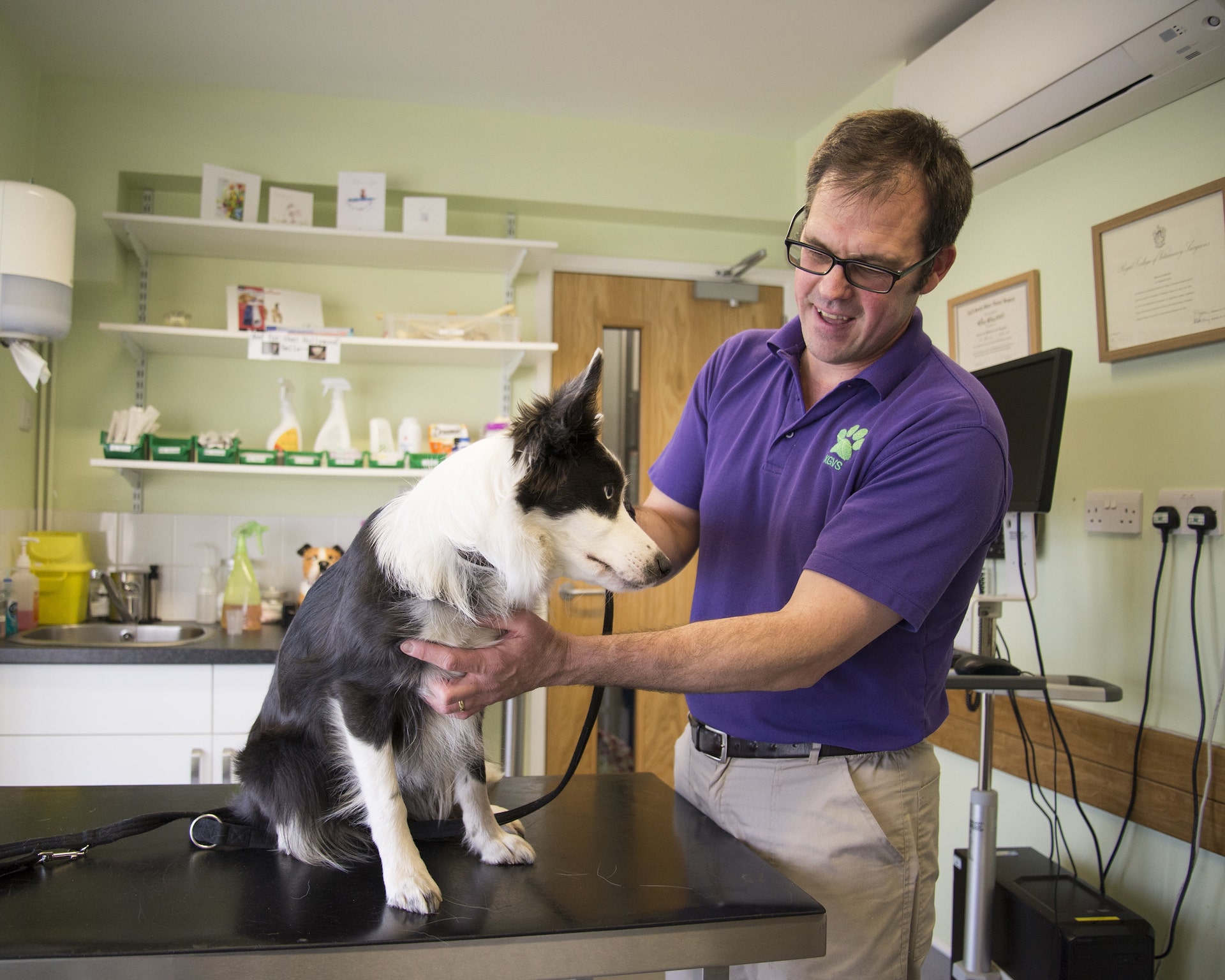Vaccination
Vaccinating your pet is one of the most important steps that you can take to reduce the risk of illness for your pet. Cats and dogs have been vaccinated for many years, resulting in a dramatic reduction in the incidence of diseases such as canine distemper, canine parvo virus infection and feline flu and enteritis. However these diseases quickly emerge again in areas where vaccination is not commonplace or there are lapses in adequate vaccination protection.
The protocol or plan of vaccination for your pet is influenced by many factors. The age, health, activity of your pet, where you live or travel with your pet, and the prevalence and risks of disease which we are aiming to control are all important considerations, as well as the duration of immunity following previous vaccination. At Kriek and Gibson Veterinary Surgery we will advise you as to the protocol that we think suits your pet, as an individual.

Many owners will ask if there are side effects associated with vaccination. The driving force behind vaccination is to keep our pets healthy by preventing disease and minimising risk to them in the process, there is however the acknowledgement that rarely the vaccination of a dog or cat might lead to an unexpected clinical reaction. Occasionally a pet may develop a very mild fever after a vaccination, which may result in a loss of appetite and/or listlessness for a day or two. More moderate reactions requiring veterinary treatment are uncommon, and fortunately severe reactions are rare.
We encourage you to discuss any questions or concerns that you may have about vaccination with Johnny or Gillian. In addition there is comprehensive information about vaccination in publications issued by the British Veterinary Association Vaccination – the facts, and the World Small Animal Veterinary Association “Vaccination Guidelines for the Owners and Breeders of Dogs and Cats”.
The new Rabbit Virus (RHD-2)
RHD (Rabbit Haemorrhagic Disease) caused by virus RHDV1 and Myxomatosis are viral diseases of rabbits that most rabbit owners are very well aware of. There is a very good combined annual vaccination for rabbits that is very effective in protecting rabbits from these diseases.
Recently a new strain of the calici virus, RHVD2, emerged in the UK rabbit population. As the immune protection against RHVD1 does not provide adequate protection for the new strain, many rabbits are falling ill and some are dying from the disease.
There is a vaccine available for this new variant which is specially imported from France. Please contact the practice if you have any questions regarding this vaccination or visit the Rabbit Welfare Association and Fund information page.
Leptospirosis vaccination
Leptospirosis is a bacterial disease which can affect many mammals, including dogs and humans. The primary host for this bacterium is often mice and rats, but infected dogs can also be a source. The organism is transmitted through infected urine. Stagnant or slow moving water provide a suitable habitat for the Leptospira outside the host’s body.
This bacterium exists in different serovars (relate types) in the environment. Dogs are susceptible to a number of these serovars. Until recently vaccination only offered protection against 2 different serovars, leaving dogs unprotected against other serovars which may cause disease. As cases of Leptospirosis have been increasing, newer vaccines have been developed to offer broader protection and there is now a vaccine that protects against 4 serovars (the L4 vaccine). KGVS recommends the use of the improved vaccine.
Contact Us Download PDF


